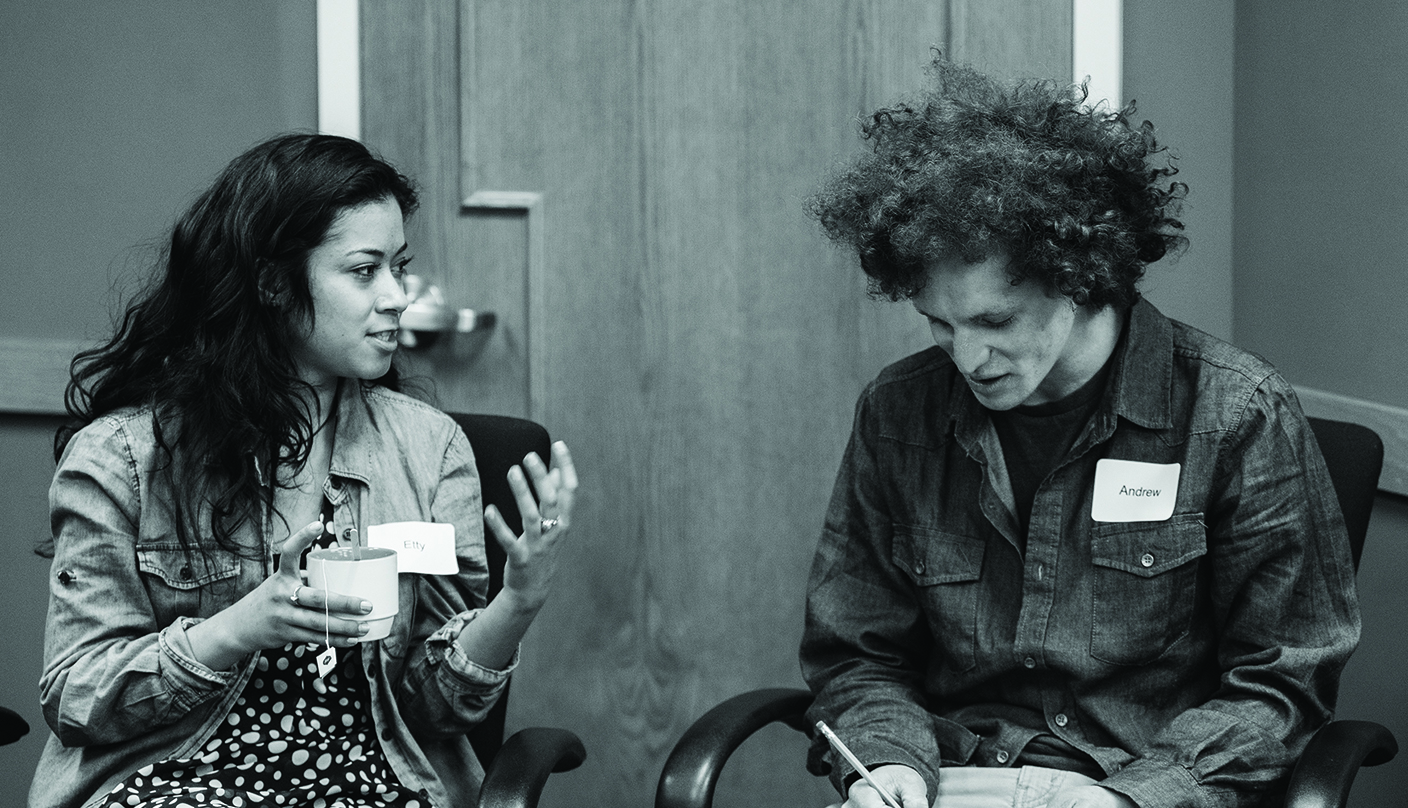 It’s a rite of passage. It’s as American as Apple Pie. Growing up, every kid needs to be told to “get off my lawn!” by their old cranky neighbor, at least once.
It’s a rite of passage. It’s as American as Apple Pie. Growing up, every kid needs to be told to “get off my lawn!” by their old cranky neighbor, at least once.
Metaphorically, this is what happens on a grand scale with each new generational cohort. Young people are labeled “lazy” and “self-centered” by the generation that precedes it. They’re criticized for the way they dress, what shows they watch, and the music they listen to. This is what’s happening currently with my generation, the “Millennials”.
I bet the original Millennials, those who came of age around 1000 A.D., were criticized for their “edgy” new style of tunics and surcoats. A millennia later, it’s hipster glasses and hoodies that are targeted.
Eventually, the freshman becomes the senior, and in turn we Millennials gripe about Generation Z, who will succeed us. “Back in our day, the Internet was a much simpler and friendlier place”, we’ll say!
Yet between all of the “back when I was your age” and “kids these days”, something more important happens in this intergenerational dialogue. The older crowd realizes their responsibility to provide guidance and support to young people. And the young bucks soon recognize it’s their duty to maintain and improve upon the great society they’ve inherited. There’s a lot of hype around Millennials these days, but it’s time we focus more on the guidance aspect. The elder generations can make a much more positive impact if they adopt the mentor, bridge-building role rather than the critic.
However, there are some within the social science sphere who believe the entire concept of “generations” provides little value. Saith marketing blogger Tom Ewing:
Ultimately I reject the idea that millennials are interesting, because millennials are a pointless umbrella category, designed to sanitise young people and marginalise any that don’t fit the cliché. The one thing the ‘generation’ concept is useful for is what it was originally designed as: triangulation for major cultural reference points. The rest is nonsense. Researchers helped create the cult of the millennial: we should do our bit to end it.
It’s true that we can wrongly use the generational cohort concept to paint things with too broad a brush. For example, many Millennials enjoy craft beer, but not all do. Many have ditched traditional TVs and landlines, but some don’t.
However, research finds that Millennials do in fact share consumer preferences that set them apart from previous generations. We know this from the extensive studies conducted by Orman Guidance and others. Major changes are taking place in everything from retail and transportation industries to office space design, a result of the pressure to adapt to Millennials’ unique consumer preferences.
The generational cohort concept is extremely important and imperative for understanding major trends and shifts in society. Each cohort brings a new set of ideas, preferences and perspectives to the world that reshape society. Every generation has their own defining features and characteristics that were cultivated when they were the young ones:
- The “GI generation” held a deep sense of public service as a result of the Great Depression and WWII
- The “Silent Generation”, who experienced the postwar rise in the standard of living, felt a particular sense of loyalty to their employers, and many stayed at the same company for their entire career.
- Baby Boomers saw injustice around them and didn’t wait for things to fix themselves. They are filled with a deep sense of activism.
- “Gen X” is the generation primarily responsible for advances in the tech industry, taking the entrepreneurial spirit to a whole new level.
- Millennials are already making waves with their desire to co-create products, experiences, and even their own careers.
Despite these generational differences, each cohort can and should try to learn from one another. A great example of intergenerational cooperation comes from Mike Rowe, the host of “Dirty Jobs”, who provides some great insight on working with Millennials: “It’s not fair to say Millennials are lazy….Millennials process work differently.” He notes that Millennials are results-driven, while his generation is more focused on work ethic. Though these different mentalities can create friction, Rowe has been able to overcome them. If he can do it, so can we. We must. Baby Boomers and Generation X are beginning to hand off some core duties and responsibilities to Millennials. There’s a lot at stake in this changing of the guard.
Our grandparents that grew up in the Great Depression remain frugal and thrifty their whole lives. Our parents tend to think newspapers and hardcover books will always be superior to Twitter or the Kindle. We Millennials feel that sharing our personal information and opinions over social media is just as natural as sharing them with the local bartender.
Ultimately, the beliefs and values we share are significantly greater in number than the things that divide us. Let’s put an end to the intergenerational wars, and help the next generation become pioneers, leaders, and visionaries.

